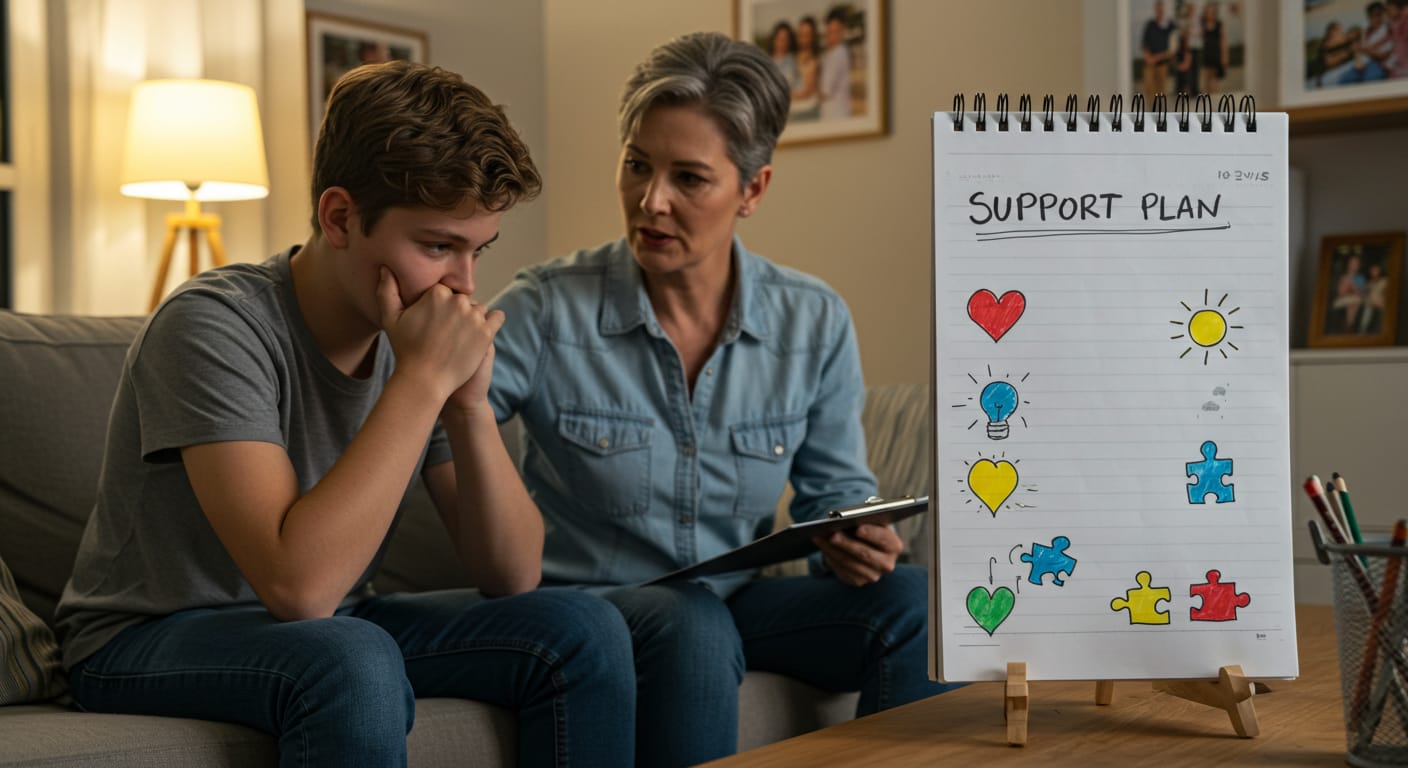Depressed Teens Need More Than Just Rules—They Need Understanding
Disciplining a depressed teenager requires more than enforcing rules. It demands empathy, patience, and emotional flexibility. Teens are already navigating a storm of pressure—academic, social, emotional—and when depression hits, they’re often too overwhelmed to ask for help.
As a parent, you’re one of their first lines of defense. Understanding their mental state and adjusting your approach to discipline can make all the difference in their recovery and long-term mental health.
🔎 Signs and Symptoms of Teen Depression
Teens rarely ask for help directly. It’s up to you to spot the signs and offer support without judgment.
Here are common symptoms:
-
Agitation and restlessness
-
Feelings of hopelessness
-
Anger, irritability, or hostility
-
Low energy and fatigue
-
Frequent crying spells
-
Sudden changes in eating or sleeping habits
-
Loss of interest in hobbies or activities
-
Unexplained physical pains (like stomachaches or headaches)
-
Poor school performance
-
Trouble concentrating
-
Lack of motivation or joy
👂 What You Need to Do as a Parent: Discipline With Love
✅ Don’t Reprimand—Listen First
The moment your teen begins to open up, resist the urge to criticize or offer quick solutions. Let them speak, even if it’s hard to hear. Just being present, calm, and compassionate shows them they’re not alone.
Let your child know:
“I’m here for you. We’ll get through this together.”
✅ Stay Calm and Be Their Anchor
Your teen’s emotions may be unpredictable. That doesn’t mean yours should be. When they’re spiraling or overwhelmed, your calm energy becomes a stabilizing force. Model resilience by showing them how to manage stress with grace and control.
✅ Be Observant—Identify Triggers
Depression and anxiety often stem from specific triggers. It might be bullying, academic stress, social pressure, or unresolved trauma.
As a parent, it helps to:
-
Watch for patterns in behavior
-
Journal mood or sleep changes
-
Gently ask questions without pushing
-
Involve a therapist or counselor for deeper insight
🧑🤝🧑 Forge Positive Alliances
Connect with:
-
Your teen’s friends
-
Their teachers or counselors
-
Other parents
Shared support creates a safety net. You don’t have to go through this alone—and neither does your teen.
Depression thrives in isolation, but it weakens in community.
🧭 Be Flexible: Structure + Support
Discipline doesn’t have to be harsh—it needs to be fair, consistent, and compassionate. Teens with depression may struggle with routines, responsibilities, and motivation. This doesn’t mean you let everything slide. But it does mean adjusting your approach.
Here’s how:
-
Set expectations clearly, but with flexibility.
-
Offer natural consequences instead of punishments.
-
Reward effort, not just outcomes.
-
Let them make some choices—they need to regain control.
🧠 Educate Yourself—Empower Your Teen
Take time to learn about depression. Read, take online courses, or attend workshops. The more you understand, the better you can respond with empathy and clarity.
Let your child know:
“You’re not broken. You’re going through something. And I’m here for you.”
❤️ Final Thought: Love, Not Fear, Leads the Way
Don’t let depression rob your child of their teenage years. With the right balance of emotional support, healthy boundaries, and open communication, you can help your teen not just survive—but grow through this.
Remember: discipline isn’t about punishment—it’s about guidance. Your love, flexibility, and presence could be the light your teen needs in a dark season.



Our 13 year old granddaughter has depression. She is in a therapy group. All she wants to do is be on her phone. She is failing all her classes. Any suggestions that I can pass on to her parents in what to do?
First, I would bring this up with her therapist. What I am hearing your granddaughter isolate herself and is using the phone way too much. Her grades along with despair indicated definitely why you have concerns. Over the years what I have seen kids use the phone to look up all types of things. They will tell a online stranger their true feeling quicker that their parents. Parents often overlook these telltale signs. Limit phone usage, especially at night will cause angry be forewarned. See what the therapist thinks, but don’t wait.